
Investigators are assessing BI 764532 in extensive-stage small cell lung cancer and other neuroendocrine carcinoma as part of the phase 2 DAREON-5 study.

Your AI-Trained Oncology Knowledge Connection!


Russ Conroy is an Associate Editor for CancerNetwork. He grew up in Hillsborough, New Jersey, and graduated from Rutgers University-New Brunswick in 2022.
On the weekends, he likes to unwind by playing video games with friends, tailgating at Rutgers football games with his family, or building his music collection with a visit to Princeton Record Exchange.

Investigators are assessing BI 764532 in extensive-stage small cell lung cancer and other neuroendocrine carcinoma as part of the phase 2 DAREON-5 study.

Data from the phase 1b/3 IMscin001 trial support the Committee for Medicinal Products for Human Use’s positive opinion on subcutaneous atezolizumab in lung cancer and other disease types.
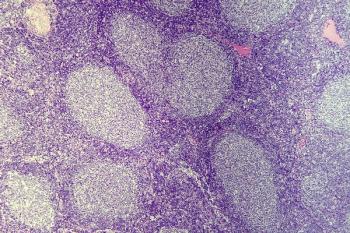
Data from the phase 1/2 EPCORE NHL-1 trial support the FDA breakthrough therapy designation for epcoritamab-bysp in patients with previously treated relapsed/refractory follicular lymphoma.

Patients with desmoid tumors can now receive nirogacestat following the FDA’s approval of the agent.
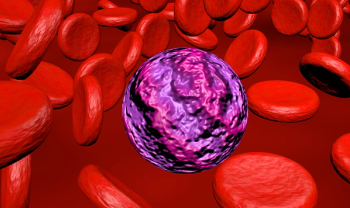
Safety data from the phase 3 PREVAPIX-ALL trial support the use of apixaban among pediatric patients with acute lymphoblastic leukemia who are at high risk of thrombosis.
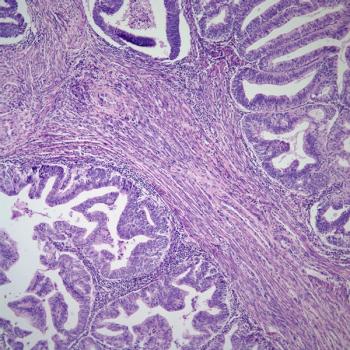
Total costs for endometrial cancer therapy in the first line appear to be higher for those diagnosed with metastatic disease compared with those who do not have metastatic disease.
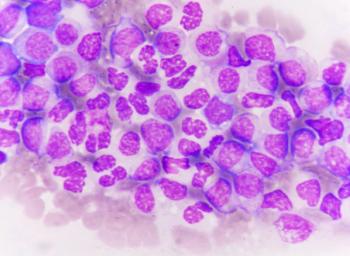
Data from the phase 2 FELIX study support the biologics license application for obecabtagene autoleucel as a treatment for patients with relapsed/refractory acute lymphoblastic leukemia.

The use of artificial intelligence may help determine how breast cancer tumors develop resistance to certain therapies, notes Rakhshanda Rahman, MD, FRCS, FACS.

An artificial intelligence-based algorithm may help with tailoring treatment for patients with retroperitoneal sarcoma by clarifying the risks of their diseases, says Amani Arthur, MRCPCH.

The safety profile of durvalumab plus chemoradiation among patients with unresectable non–small cell lung cancer in the phase 3 PACIFIC-2 trial appears to be consistent with prior reports.

A panel of experts discusses the management of adverse effects including dysgeusia and infections among patients who received bispecific therapies for relapsed/refractory multiple myeloma in the context of a clinical case.

Companion diagnostic designation for FoundationOne CDx may improve access to treatment with capivasertib plus fulvestrant among patients with hormone receptor–positive, HER2-negative breast cancer harboring select alterations.

Findings from the phase 3 SKYSCRAPER-02 trial support outcomes following atezolizumab plus chemotherapy for patients with extensive-stage small cell lung cancer.

Data from the phase 3 MARIPOSA-2 study support the supplemental biologics license application for amivantamab plus chemotherapy in EGFR-mutated advanced or metastatic non–small cell lung cancer.
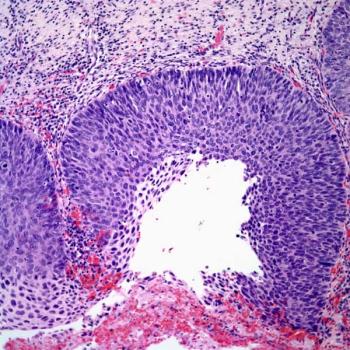
Findings from the phase 2 SKYSCRAPER-04 trial support dual targeting of TIGIT and PD-L1 in patients with PD-L1–positive cervical cancer, says Ritu Salani, MD.

Data from the phase 3 MIRASOL trial support mirvetuximab soravtansine as a new standard of care for patients with folate receptor α–positive, platinum-resistant ovarian cancer, says Kathleen N. Moore, MD, MS.

The progression-free survival benefit of dostarlimab and chemotherapy extends to those with mismatch repair deficient or microsatellite instability–high advanced endometrial cancer.

Data from the phase 1/2 TRIDENT-1 trial support the FDA approval of repotrectinib for those with ROS1-positive advanced or metastatic non–small cell lung cancer.
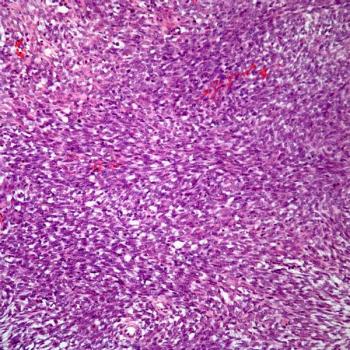
Combining atezolizumab with bevacizumab and chemotherapy may be a new frontline therapy option for patients with metastatic, persistent or recurrent cervical cancer, says Ana Oaknin, MD, PhD.

Use of the surgical Epione robot will save a significant amount of time when performing surgery for patients with liver tumors and potentially other cancers, says Govindarajan Narayanan, MD.

Approval of PD-L1 IHC 22C3 pharmDx may also identify patients with non–small cell lung cancer and other malignancies who may benefit from treatment with pembrolizumab.

Data from the phase 3 KEYNOTE-A18 study may support pembrolizumab plus chemoradiotherapy as a new standard of care for those with newly diagnosed, high-risk, locally advanced cervical cancer.

Data from the phase 3 CHRONOS-4 study highlight that copanlisib did not reach the primary end point of progression-free survival among patients with relapsed follicular lymphoma.

Radiographic progression-free survival outcomes with olaparib plus abiraterone acetate and prednisone appear to be consistent with prior analyses of the phase 3 PROpel trial.

Continued manufacturing of methotrexate may improve access to chemotherapy for patients with breast cancer, lung cancer, and other malignancies in the United States.

Data from the phase 1/2 TRANSCEND CLL 004 study support an application for liso-cel as a treatment for patients with relapsed/refractory chronic lymphocytic leukemia or small lymphocytic lymphoma.

Only patients with PD-L1–positive tumors may receive treatment with pembrolizumab plus trastuzumab and chemotherapy for HER2-positive gastric or gastroesophageal junction adenocarcinoma following the FDA’s amendment.

Docetaxel plus standard of care may be beneficial among patients with prostate cancer and low prostate-specific antigen levels who do not have any highly effective treatment options, says Anthony D’ Amico, MD, PhD.
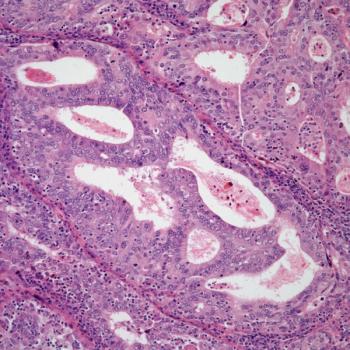
Preliminary overall survival data with atezolizumab plus bevacizumab and chemotherapy in recurrent ovarian cancer in the phase 3 ATALANTE trial appear to warrant further analysis.

Investigators are assessing rhenium obisbemeda as a treatment for breast cancer harboring leptomeningeal metastases as part of the phase 1/2a ReSPECT-LM trial.